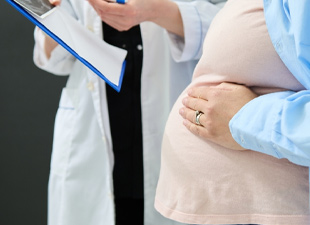Fertility After 30 – What Every Woman Should Know


Fertility After 30 – What Every Woman Should Know
Today, many women choose to start families later in life due to career goals, personal aspirations or health planning. While this is empowering, it’s also important to understand how fertility naturally changes after age 30 and what can be done to support reproductive health.
At Bharath Super Speciality Hospitals, West Tambaram, Chennai, our experienced fertility specialists guide couples at every stage of their conception journey. In this blog, we explore what happens to fertility after 30, common concerns and available medical and lifestyle interventions to enhance your chances of a healthy pregnancy.
How Age Affects Female Fertility
A woman is born with all the eggs she will ever have—about 1 to 2 million at birth. By the time she reaches puberty, that number drops to 300,000 to 400,000. Fertility typically peaks in the early 20s and starts to decline around the age of 30. After 35, the decline becomes more rapid.
- Lower quantity and quality of eggs
- Increased risk of chromosomal abnormalities
- Higher chances of miscarriage
- Greater likelihood of underlying conditions like endometriosis or fibroids
However, this doesn't mean pregnancy after 30 is impossible. Many women successfully conceive and have healthy babies well into their late 30s and even early 40s—with the right care.
Fertility Milestones by Age
- 30 to 34: Fertility begins to slowly decline, but many women still conceive naturally.
- 35 to 37: The decline accelerates, and doctors may recommend fertility testing after 6 months of trying.
- 38 to 40: Natural conception becomes more difficult, and risk of complications increases.
- 40 plus: Fertility rates are lower, but assisted reproductive technologies can help.
When to Get a Fertility Evaluation
If you're over 30 and:
- Have been trying to conceive for more than 6 months
- Have irregular periods or no periods
- Have a history of PCOS, endometriosis, fibroids or pelvic infections
- Have had multiple miscarriages
it’s time to consult a fertility specialist in West Tambaram. Early evaluation can help avoid unnecessary delays in treatment.
Male Fertility Also Matters
Fertility is not just a woman’s issue. Male fertility also declines with age, though more gradually. Men over 40 may have lower sperm motility and higher DNA fragmentation. That’s why both partners should be evaluated for a complete fertility picture.
Fertility Tests After 30
Your doctor may recommend:
- Ovarian reserve testing (AMH, FSH, Antral Follicle Count)
- Hormone panel (Thyroid, Prolactin, LH, Estradiol)
- Pelvic ultrasound
- Hysterosalpingography (HSG) to check fallopian tubes
- Semen analysis for male partner
Boosting Fertility Naturally After 30
Eat Fertility-Friendly Foods
- Antioxidant-rich foods like berries and leafy greens
- Whole grains, lean proteins and healthy fats
- Avoid trans fats, processed foods and excessive caffeine
Maintain a Healthy Weight
Being underweight or overweight can disrupt ovulation and hormones.
Quit Smoking and Limit Alcohol
Both are known to reduce egg quality and lower chances of conception.
Reduce Stress
Chronic stress may interfere with ovulation. Try yoga, meditation or counselling.
Exercise Moderately
Too much or too little can negatively impact fertility. Aim for 30 minutes of moderate activity most days.
Medical Options for Fertility After 30
- Ovulation Induction: Medications like Clomiphene or Letrozole stimulate egg production.
- Intrauterine Insemination (IUI): Sperm is placed directly into the uterus to increase chances of fertilization.
- In Vitro Fertilization (IVF): Eggs are fertilized in a lab and then implanted into the uterus. IVF success rates can still be good in women under 40.
- Egg Freezing: Ideal for women in their early 30s who want to delay pregnancy. Eggs can be preserved for future use.
- Donor Eggs and Embryos: In women over 40 or with very low ovarian reserve, donor eggs may improve the success rate.
Pregnancy Risks After 30 and How to Manage Them
Pregnancy after 30 may come with higher chances of:
- Gestational diabetes
- High blood pressure
- Placenta previa
- Chromosomal issues like Down syndrome
However, with regular antenatal care, most risks can be monitored and managed for a healthy delivery.
Why Choose Bharath Super Speciality Hospitals for Fertility Care
- Expert fertility specialists and gynaecologists
- Advanced diagnostics and reproductive technologies like IVF, IUI and egg freezing
- Confidential and compassionate care
- Holistic support including counselling, nutrition and stress management
- Personalized treatment plans for women over 30
Final Thoughts on Fertility After 30
If you're in your 30s and planning a baby, the most important step is not to wait if you're facing delays in conception. Fertility may decline with age, but options and help are available.
At Bharath Super Speciality Hospitals, West Tambaram, we are here to support your journey to parenthood with compassion, expertise and the latest fertility care.
Contact us today for consultation with the best fertility specialists in West Tambaram, Chennai.

